
 Estimates suggest there are anywhere from 2 million to 4 million domestic assaults on women each year in the United States. That wide estimate range is due to the fact many cases go unreported. Violence involving current or former partners occurs in every age, racial, religious, and socioeconomic group. Unfortunately, many individuals are wrongly accused of domestic violence because they are in the midst of contentious divorce or family law proceedings. While domestic violence orders of protection are meant to help victims or potential sufferers, a vindictive former partner can also weaponize them in an attempt to sway the tone and eventual decisions in litigation.
Estimates suggest there are anywhere from 2 million to 4 million domestic assaults on women each year in the United States. That wide estimate range is due to the fact many cases go unreported. Violence involving current or former partners occurs in every age, racial, religious, and socioeconomic group. Unfortunately, many individuals are wrongly accused of domestic violence because they are in the midst of contentious divorce or family law proceedings. While domestic violence orders of protection are meant to help victims or potential sufferers, a vindictive former partner can also weaponize them in an attempt to sway the tone and eventual decisions in litigation.
If you are falsely accused of domestic violence, immediately contact a skilled criminal defense lawyer who can serve as your advocate and ensure the truth is not drowned out by false allegations.
 More than 27,000 DUI arrests were recorded in Illinois last year. Many of these constituted aggravated DUI offenses, which are the most serious DUI charges a driver can face. In Illinois, aggravated DUI is any DUI offense that results in a felony charge. A first or second DUI conviction is classified as a misdemeanor, but subsequent convictions or circumstances that involve various levels of endangerment, injury, or death can be charged as felonies. While you should have a skilled attorney for any DUI charge, it is impossible to overstate the need if you face aggravated DUI charges.
More than 27,000 DUI arrests were recorded in Illinois last year. Many of these constituted aggravated DUI offenses, which are the most serious DUI charges a driver can face. In Illinois, aggravated DUI is any DUI offense that results in a felony charge. A first or second DUI conviction is classified as a misdemeanor, but subsequent convictions or circumstances that involve various levels of endangerment, injury, or death can be charged as felonies. While you should have a skilled attorney for any DUI charge, it is impossible to overstate the need if you face aggravated DUI charges.
Anyone convicted of aggravated DUI is subject to community service or imprisonment that cannot be suspended or reduced. Even those who receive probation or conditional discharge get at least 480 hours of community service or 10 days of incarceration.
 While getting caught with drug paraphernalia is typically considered less serious than a drug possession charge, that is not always the case. It is illegal to possess drug paraphernalia in Illinois, and penalties can be severe and costly, regardless of whether it was discovered along with narcotics.
While getting caught with drug paraphernalia is typically considered less serious than a drug possession charge, that is not always the case. It is illegal to possess drug paraphernalia in Illinois, and penalties can be severe and costly, regardless of whether it was discovered along with narcotics.
Illinois’ Drug Paraphernalia Control Act defines drug paraphernalia as equipment or materials (other than those used to produce methamphetamine, which is covered in the Methamphetamine Control and Community Protection Act) intended to plant, grow, harvest, test, store, conceal, or consume a controlled substance. Related devices used to smoke marijuana, cocaine, hash products, synthetic drugs, or other substances include various forms of pipes and bongs. Also included are drug manufacturing kits, testing equipment, and cutting agents.
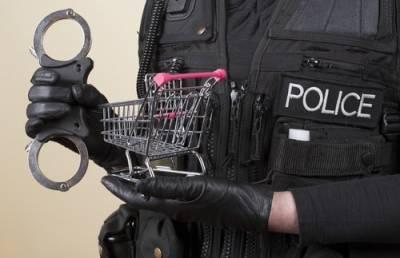 The National Association for Shoplifting Prevention says around one of every 11 Americans is a shoplifter. Minors account for 25 percent of shoplifting crimes, while adults make up 75 percent. Some 55 percent of adult shoplifters say they started in their teens.
The National Association for Shoplifting Prevention says around one of every 11 Americans is a shoplifter. Minors account for 25 percent of shoplifting crimes, while adults make up 75 percent. Some 55 percent of adult shoplifters say they started in their teens.
While the Christmas shopping season now underway is the most profitable time of the year for retailers, it is also the busiest shoplifting time on the calendar. Some people steal for themselves, others do it for presents, and some sell what they steal at a discount for 100 percent profit.
No matter the reason, retail security is already out in force to bust thieves. Here is a look at retail theft laws in Illinois. If you or your loved one faces theft charges, a criminal defense attorney can help.
Shoplifting Laws in Illinois
 During a recent four-year period, there were more than 4,500 motor vehicle crashes in Illinois roadway work zones, with nearly 1,100 injuries and 27 deaths. With those unfortunate statistics, you can see why the State of Illinois and law enforcement take construction zone traffic violations so seriously.
During a recent four-year period, there were more than 4,500 motor vehicle crashes in Illinois roadway work zones, with nearly 1,100 injuries and 27 deaths. With those unfortunate statistics, you can see why the State of Illinois and law enforcement take construction zone traffic violations so seriously.
Getting pulled over for excessive speed or texting on your phone in a work zone can prove costly, and put your driving privileges in jeopardy if you have previous infractions on your driving record. Here is a look at what you could face if convicted of a work zone speed limit or phone violation:
Many drivers incorrectly believe construction zone speed limits only apply if workers are present. The truth is, motorists account for 90 percent of all work zone fatalities, and these limits are primarily posted for the safety of drivers and passengers, typically due to narrow lanes, lane reductions, and edge drop-offs. Traveling at a slower speed gives a driver more time to adjust to these conditions.
 Getting pulled over by police while intoxicated or under the influence of drugs can seriously impact your life, as well as your livelihood if your driving privileges are taken away. While Illinois laws are stringent when it comes to driving under the influence, the state sometimes provides relief for those facing their first DUI charge. Statistics released by the state say around 20 percent of first-time offenders are actually convicted. Many are instead required to comply with court supervision, and possible drug and alcohol counseling or driving school.
Getting pulled over by police while intoxicated or under the influence of drugs can seriously impact your life, as well as your livelihood if your driving privileges are taken away. While Illinois laws are stringent when it comes to driving under the influence, the state sometimes provides relief for those facing their first DUI charge. Statistics released by the state say around 20 percent of first-time offenders are actually convicted. Many are instead required to comply with court supervision, and possible drug and alcohol counseling or driving school.
To effectively navigate the process and achieve the most positive outcome possible, you do not want to represent yourself in court. You should entrust an experienced DUI attorney to handle this critical juncture in your life. Here is a look at DUI charges, potential penalties, and options for first-time offenders:
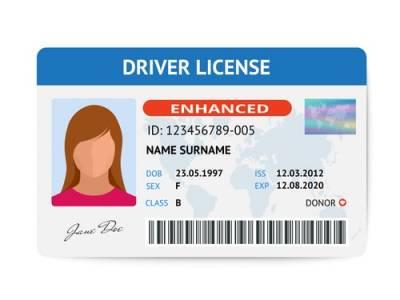 Whether at college or in their hometown, young adults are often tempted to do whatever it takes to get into bars before they turn 21 years old, the legal drinking age in Illinois and across the U.S.
Whether at college or in their hometown, young adults are often tempted to do whatever it takes to get into bars before they turn 21 years old, the legal drinking age in Illinois and across the U.S.
That desire leads some to acquire fake identification. This may include using someone else’s ID as their own, presenting another person’s information at an Illinois license branch to get a new ID, or obtaining one through an individual or business that sells them. While it might seem like a victimless crime in order to have some fun, the state of Illinois does not see it that way.
In Illinois, it is illegal to possess, use, distribute, or help someone get a fake driver’s license or ID card. At a minimum, your license can be suspended for up to a year for any of those offenses.
You could be charged with a Class A misdemeanor, with up to a year in jail and a $2,500 fine for:
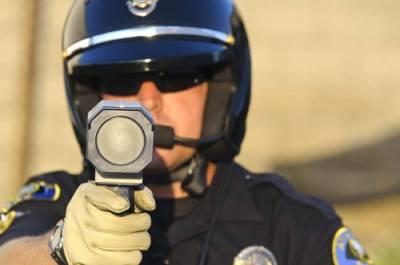 Sometimes even the most cautious drivers get pulled over for speeding. You might think a solo speeding violation is no big deal, but that is not always the case. Multiple traffic violations, and even one serious violation, can lead to a suspension of your driver’s license that can negatively impact much of your life.
Sometimes even the most cautious drivers get pulled over for speeding. You might think a solo speeding violation is no big deal, but that is not always the case. Multiple traffic violations, and even one serious violation, can lead to a suspension of your driver’s license that can negatively impact much of your life.
Here is how a speeding ticket in Illinois works:
Driver’s License Points
Drivers under 21 years of age may lose their license for getting two or more tickets in a two-year period. Drivers over 21 receive an automatic license suspension for three moving violations within 12 months.
If you are convicted of a moving violation, you pay a traffic ticket fine and points are added to your Illinois driving record. The number of assigned points depends on the severity of your violation.
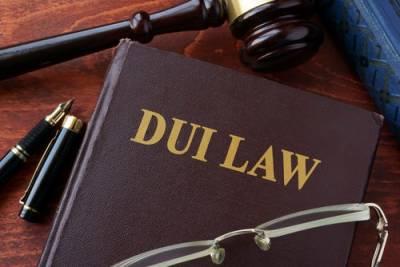 While drinking alcohol before the age of 21 is considered a rite of passage by many, Illinois law enforcement and the legal system do not see it that way. For a minor charged with the illegal consumption of alcohol or driving under the influence (DUI), the penalties are no laughing matter. If your child has been charged with an offense related to underage drinking, you should work with an attorney who can help you understand how to minimize any resulting difficulties.
While drinking alcohol before the age of 21 is considered a rite of passage by many, Illinois law enforcement and the legal system do not see it that way. For a minor charged with the illegal consumption of alcohol or driving under the influence (DUI), the penalties are no laughing matter. If your child has been charged with an offense related to underage drinking, you should work with an attorney who can help you understand how to minimize any resulting difficulties.
Illegal Alcohol Consumption in Illinois
The consumption, possession, purchase, or receipt of alcohol by someone under 21 is punishable by a three-month driver’s license suspension for an offense that results in court supervision. That suspension increases to six months for a first conviction, one year for a second conviction, and driver’s license revocation for any subsequent convictions. Anyone under 21 who transports liquor can be assessed a maximum $1,000 fine. The driver could face a one-year license suspension for a first offense and a one-year license revocation for additional offenses.
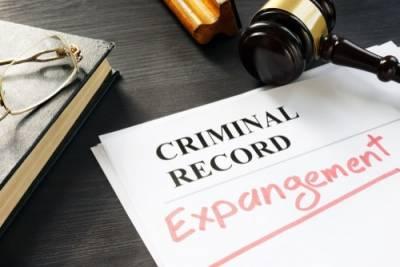 Having a criminal record can affect various aspects of your life, including job opportunities, housing options, and even admission into many schools. Even if a charge is dismissed, it can remain on your record. Fortunately, people with criminal records have the ability to clear their record through the process of expungement.
Having a criminal record can affect various aspects of your life, including job opportunities, housing options, and even admission into many schools. Even if a charge is dismissed, it can remain on your record. Fortunately, people with criminal records have the ability to clear their record through the process of expungement.
An expungement is a court-ordered process that erases the legal record of an arrest or criminal conviction in the eyes of the law, which can vastly improve your ability to get a job, qualify for a mortgage, or gain admission to an educational institution. Once an arrest or criminal conviction is expunged, it no longer needs to be disclosed on job or housing applications by the person who was arrested or convicted. A record that has been expunged is destroyed, and it will not show up in public records inspections or background searches performed by potential employers and other companies or institutions.
 A lawyer’s time and advice are his stock and trade.
A lawyer’s time and advice are his stock and trade.